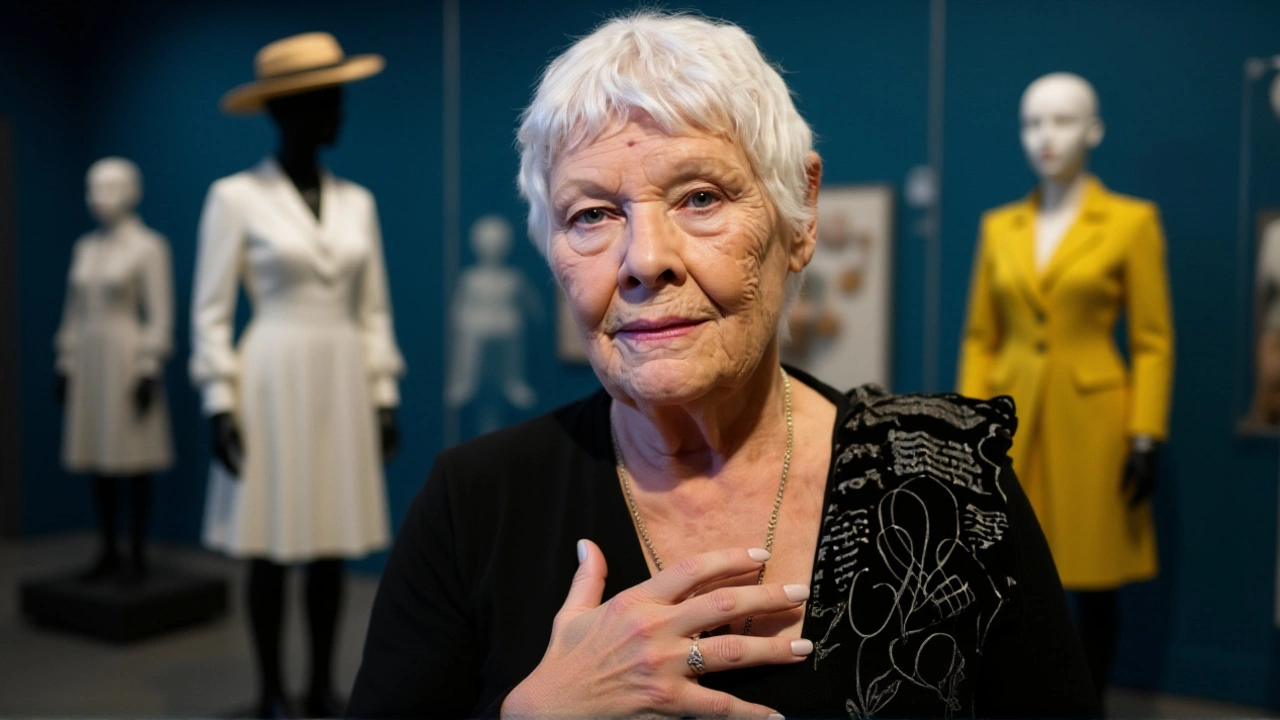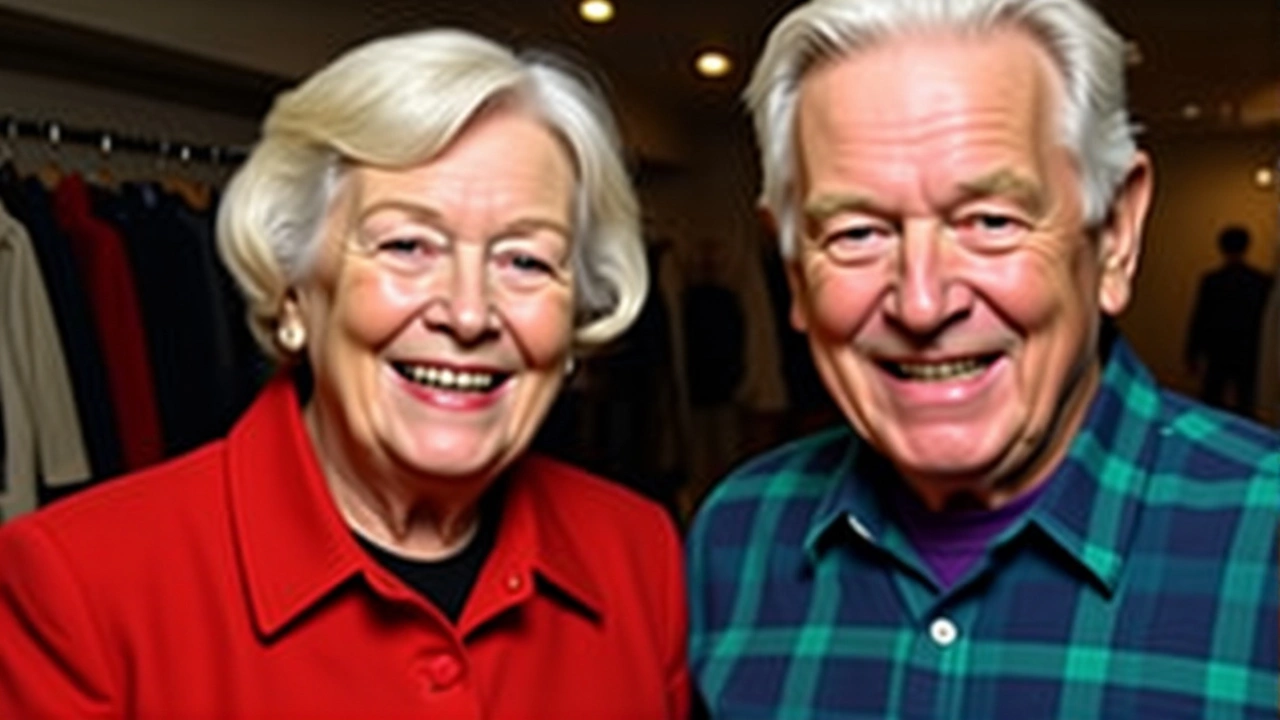At 90, Dame Judi Dench isn’t slowing down—she’s rebuilding. Alongside Sir Ian McKellen, 86, and Sir Derek Jacobi, the trio are spearheading a bold transformation of the Cambridge Arts Theatre, a historic venue that’s been a cornerstone of East Anglian culture since 1936. Their goal? A new 200-seat rooftop studio theatre, designed not as a glitzy addition, but as a raw, flexible space for new writers, student actors, and local communities to take center stage. It’s not just bricks and mortar—it’s a lifeline for the next generation of British theatre talent.
Why This Matters More Than You Think
The Cambridge Arts Theatre isn’t just a building. It’s where young actors first dared to speak Shakespeare, where regional playwrights tested their first scripts, and where generations of Cambridge University students found their voice. But over the years, funding dried up, audiences aged, and the physical space grew outdated. Now, with Dench, McKellen, and Jacobi—three icons who all cut their teeth in British theatre—publicly backing the £12 million Phase Two redevelopment, the project has gone from hopeful to unstoppable. The rooftop studio? It’s meant to be intimate, unpolished, and loud. No velvet curtains. No reserved seats. Just a stage, a mic, and the kind of raw energy that makes theatre feel alive again."It’s not about prestige," Dench told The Stage. "It’s about permission. Giving someone who’s never stepped on a stage the courage to try." And it’s not just about the building. The trio are also quietly funding a separate initiative to provide affordable housing for working-class playwrights in London—a quiet act of structural support that few notice but many will benefit from.
London’s National Theatre Gets a New Chapter
While the Cambridge project unfolds, Dench and McKellen are turning heads in London. The National Theatre, under artistic director Indhu Rubasingham, has launched a new series called Next Chapter—a deliberate break from tradition. No classic revivals. No safe bets. Instead: a live theatrical reimagining of rapper Wretch 32’s new album, HOME?, set for October 23, 2025, in the Olivier Theatre. Directed by Clint Dyer, the performance will weave poetry, dance, and music to explore Black British identity. Tickets go on sale September 12 at 10am—and they’re expected to sell out in minutes.Then, on December 19, 2025, at 4:45pm, the same stage will host what may be one of the last great theatrical moments of our time: Dench and McKellen in conversation with Jim Carter, best known as Mr. Carson from Downton Abbey. For context: Dench hasn’t appeared on stage in years. McKellen, despite his legendary stamina, has largely stepped back from full productions. This isn’t a reunion. It’s a reckoning. A celebration of what they’ve built—and what’s still possible.
"Every time we meet up, I can look forward to love and laughter," McKellen said, smiling. Dench added, "A wonderful chance to be a little bit naughty together." Carter, ever the gracious host, called it "a true privilege."

A Strategic Shift in British Theatre
Rubasingham’s vision is clear: the National Theatre isn’t just a museum of classics. It’s a living room for Britain’s evolving culture. The inclusion of Wretch 32—a Mercury Prize-nominated artist who grew up on council estates—isn’t a gimmick. It’s a message. "We’re not chasing trends," she said. "We’re listening to voices that have been waiting to be heard."And she’s not done. Sources confirm an untitled collaboration with grime superstar Stormzy is in early development. Imagine Hamlet meets a beatbox cypher. Or Bacchae with a bassline. The boundaries are dissolving—and audiences are responding. The National’s 2025-2026 season also includes James McArdle in Bacchae, Hiran Abeysekera as Hamlet, and Nicola Coughlan in The Playboy of the Western World. But it’s the unorthodox pairings—the rapper, the octogenarians, the former Downton Abbey butler—that are rewriting the script.

What’s Next for British Theatre?
The Cambridge Arts Theatre redevelopment is scheduled for completion by late 2027. Meanwhile, the National Theatre’s Next Chapter series will continue into 2026, with more surprise collaborations expected. What’s remarkable isn’t just the star power—it’s the intentionality. These aren’t celebrities lending their names for a photo op. They’re architects of change."Theatre doesn’t survive on nostalgia," Jacobi said in a recent interview. "It survives because someone, somewhere, still believes it can surprise them."
And right now, across two cities, from a rooftop studio in Cambridge to the Olivier stage in London, that belief is louder than ever.
Frequently Asked Questions
Why is the rooftop theatre at Cambridge Arts Theatre so important?
The 200-seat rooftop studio is designed as a low-cost, high-impact space for emerging writers and non-professional performers—especially those from underrepresented backgrounds. Unlike traditional theatres, it won’t require elaborate sets or ticket prices over £20, making it accessible to students, community groups, and first-time creators. This directly addresses a long-standing gap in UK theatre funding for experimental, grassroots work.
Is Judi Dench really coming out of retirement?
Not for a performance. Dench, who hasn’t appeared on stage since 2019’s Plenty revival, is participating in a conversation—not a play. Her involvement signals her continued influence, not a return to acting. As Time Out London noted, she’s "almost certainly retired from the stage," making this rare public appearance all the more meaningful as a mentorship moment.
What’s the significance of Wretch 32 performing at the National Theatre?
Wretch 32 is a British grime artist whose music tackles identity, class, and systemic inequality. His album HOME? being adapted into a theatrical performance at the National Theatre marks a historic shift: a major institution embracing contemporary urban music as legitimate theatre. It’s the first time a rapper’s full album has been reimagined as a live stage piece at the National, signaling a broader cultural reckoning with who gets to tell stories on Britain’s biggest stages.
How does this affect theatre accessibility in the UK?
Both initiatives directly tackle accessibility. The Cambridge rooftop will offer free or £5 tickets for local school groups, while the National’s Next Chapter series includes £15 standing tickets for under-25s. Combined with Dench and McKellen’s housing fund for working-class writers, these efforts are dismantling financial and social barriers that have long kept theatre elitist. It’s not just about tickets—it’s about who gets to create them.
What’s the timeline for these projects?
Tickets for Wretch 32’s HOME? go on sale September 12, 2025, at 10am; the Dench-McKellen conversation tickets follow on September 19, 2025, at 10am. The Cambridge Arts Theatre rooftop theatre is expected to open in late 2027. Meanwhile, Stormzy’s collaboration with the National Theatre is still in early development, with no confirmed date yet—but industry insiders expect an announcement by early 2026.
Why are Dench, McKellen, and Jacobi involved in both projects?
All three began their careers in regional theatres before reaching national fame. They’ve seen how funding cuts and urban migration have hollowed out local arts infrastructure. Their involvement isn’t altruism—it’s accountability. They’re using their legacy to ensure the next generation doesn’t have to fight the same battles. As Jacobi put it: "We were given a chance. Now it’s our turn to open the door."
